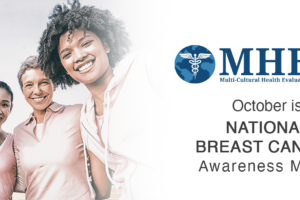
October is Breast Cancer Awareness Month, a time dedicated to raising awareness about the importance of early detection and screening. Breast cancer is the most common cancer among women worldwide, and early detection through mammograms can save lives. By taking proactive steps to monitor your breast health, you can ensure the best possible outcomes for yourself and your loved ones.
The Importance of Early Detection
Early detection is crucial in the fight against breast cancer. When breast cancer is detected at an early stage, the chances of successful treatment are significantly higher. Mammograms, which are X-ray images of the breast, can detect tumors that are too small to be felt. This allows for earlier intervention and a wider range of treatment options.
Understanding Mammograms
Mammograms are the gold standard for breast cancer screening. The American Cancer Society recommends that women aged 40 and older should have a mammogram every year. For women with a higher risk of breast cancer, such as those with a family history of the disease, earlier and more frequent screenings may be recommended.
What to Expect During a Mammogram
A mammogram is a simple and quick procedure that takes about 20 minutes. During the exam, each breast is compressed between two plates to obtain clear X-ray images. While the compression may cause some discomfort, it is necessary to get the best possible images. The results are usually available within a few days, and your healthcare provider will discuss them with you.
Promoting Women’s Health
Regular screenings and open communication with your healthcare provider are essential for maintaining overall health and well-being. Women’s health services, such as primary care and gynecology, play a vital role in preventive care. Your healthcare provider can help you understand your risk factors for breast cancer and develop a personalized screening plan.
Taking Charge of Your Health
In addition to regular mammograms, there are other steps you can take to reduce your risk of breast cancer:
- Maintain a Healthy Lifestyle: Eat a balanced diet, exercise regularly, and maintain a healthy weight.
- Limit Alcohol Consumption: Drinking alcohol is linked to an increased risk of breast cancer. Limiting your intake can help reduce this risk.
- Avoid Smoking: Smoking is associated with many health problems, including an increased risk of breast cancer.
- Perform Breast Self-Exams: While self-exams do not replace mammograms, they can help you become familiar with your breasts and identify any changes that may need further evaluation.
Breast Cancer Awareness Month is a reminder of the importance of early detection and proactive health measures. By scheduling regular mammograms, maintaining a healthy lifestyle, and staying informed about breast cancer risks, you can take charge of your health and reduce your risk of breast cancer. Remember, early detection saves lives, and your healthcare provider is your best ally in ensuring your long-term health and well-being.
For more information on breast cancer screening and women’s health services, visit the American Cancer Society’s Breast Cancer page and the National Breast Cancer Foundation website.
Want to get a head start on your health? Call MHEDS at 814-453-6229 (Peach Street) or 814-616-7730 (John F. Kennedy Center).
Our health information does not replace the advice of a doctor. Please be advised that this information is made available to assist the public in learning more about their health. MHEDS’ providers may not see and/or treat all topics found herein.
Sources
- American Cancer Society. (2021). Breast Cancer.
www.cancer.org/cancer/breast-cancer.html - National Breast Cancer Foundation. (2021). Breast Cancer Awareness.
www.nationalbreastcancer.org/








